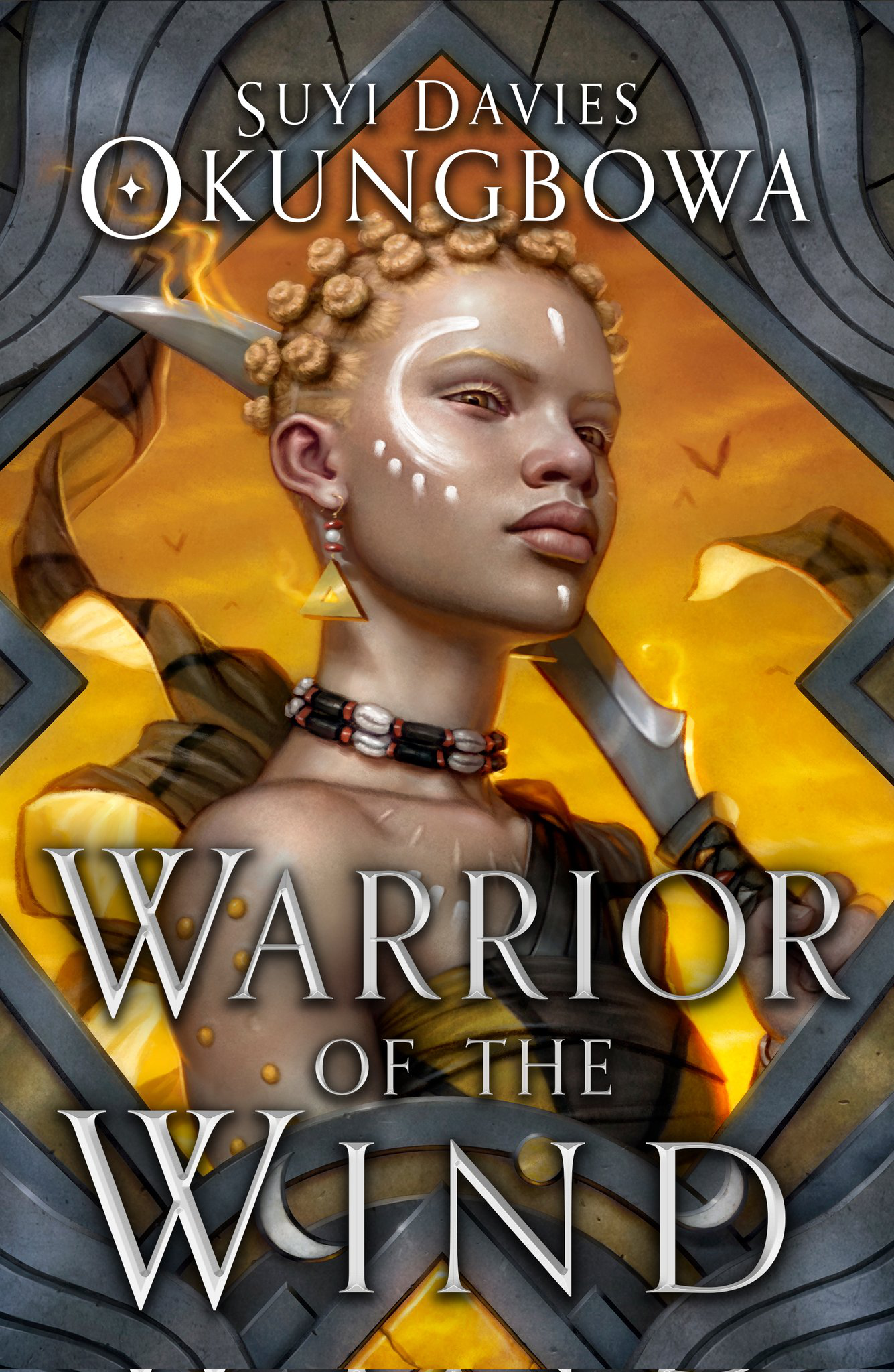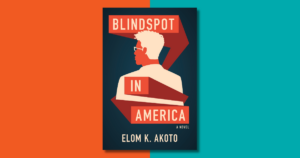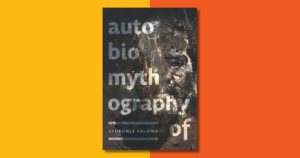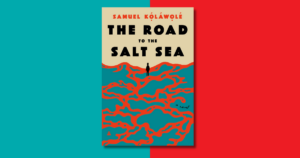1
Five Hunthands
The Lonely Roads West
Fifth Mooncycle, 19–21
Chabo was a colony of vagabonds.
Every soul in Chabo was running from something. People of disrepute who, if their feet were to touch the dust of any city or settlement in the Savanna Belt, would be pounced upon and sent into a forever darkness. Those who lacked ambition, aspiration, or resourcefulness, making Chabo the only place on the continent that would not eat them alive for it. Those who moved between worlds, who needed a place of dishonour that operated by its own rules to pause and rethink their strategies.
Chabo asked nothing of those who came. There were no councils, no civic guards, no warrant chiefs, no vigilantes, no peace officers. Nothing but a haphazard collection of rogue communes in the western armpit of the Savanna Belt. It was generally agreed that any soul without a wish to be absorbed into this colony was to remain on the northward trade routes that sprouted from Chugoko, a real city. It was advised not to turn even one’s neck westward, let alone one’s kwaga.
Except, of course, if one wanted to turn their sights on Chabo in search of something that did not wish to be found.
Five mooncycles into the second season of the Red Emperor, a wagon carrying five men turned westward like so, sidling the Soke mountains and border moats, and set themselves upon the Lonely Roads West to Chabo. Each man was dressed in armored hunthand garb—skirts, chest plates, iron headwear—and bore a short spear and long blade. Faces half-shielded by veils, eyes alone betraying grim temperament. In their wagon: shackles, blindfolds, an iron crossbolt.
They rode in the open wagon and spat in the browning grass by the wayside, not an eye taken off the roads, minds focused on the colony ahead of them. They camped without event on the first day. By the next day, they came upon the first person they had seen in a long time: a wrinkled old desertlander who sat in the dust and batted flies from his lips.
They kicked aside his alms bowl and shoved a worn leaflet into his nose.
“In the name of the Red Emperor, tell us what you know of this,” the leader of the hunthands—a dark man with tribal marks etched into his cheeks, remnants of his hinterland origins—said in halting Savanna Common.
The almsman cocked his head and licked his dry, cracked lips. He squinted at the sheet of paper, struggling to make out the faint markings in the glare of the sun. It was unclear what language the words were written in. Besides, the man couldn’t read. He shrugged after trying, pointed at his ear, then at his head, to say he understood neither their words nor the markings.
“We seek the jali who made this,” said the leader, switching to a smoother border pidgin, more easily understood. “We are led to believe it came from Chabo.”
The almsman shrugged again. The leader smacked him on the cheek.
“Listen, you millipede,” he said. “This jali and his accomplices are fugitives of the Red Emperor. If you have seen a Shashi in Chabo, you better tell us now.” When the almsman struggled to process the word Shashi, the leader added: “He rides a dead bat that is not dead, and can call on lightning. He may be travelling with a yellowskin.”
The almsman blinked at that, then stifled a chuckle, and that was all it took.
One of the men punched him in the face and broke his nose. They left him bleeding into the dry grass, red reflecting in the hard heat of noon.
Next, they came upon a nomadic group of cattle and goat rearers. They stopped and asked the same questions. The rearers, a ragtag group of poorly armed men, said they sounded ridiculous. A bat-riding Shashi and a yellowskin? They had walked the length and breadth of this Savanna Belt and had never seen such things. They waved the hunthands aside and asked to be left alone.
One of the hunthands took off his veil to reveal his mouth: lips sewn shut, copper wires criss-crossing top to bottom, leaving dark, reddish patterns where they pierced.
Immediately the nomads saw this, they fell to their knees, heads bowed in the sand. “We did not know you were the Red Emperor’s peace officers,” they pleaded. “We thought you were bandits or swindlers trying to take our goats.”
The lead hunthand, in response, mounted the crossbolt and shot it between three goats. The rearers swallowed their hurt and rage and sorrow as the hunthands made them chop up the meat, dry it over a fire, and salt it for the rest of their trip.
On the third day, a few hours outside of Chabo, the hunthands met another vagabond.
This man happened to be headed away from Chabo, toward Chugoko, and luckily for them, knew about the tract. He had seen others like it being read back in Chabo, passed from hand to hand. All nonsense stories, he said, lies about the Red Emperor and Bassa. But it was popular in the colony, often read around night-fires among the companies that plied their trade there.
They thanked him, but for good measure, stripped him of his belongings.
They had barely gone another hour when they met another vagabond, this one cloaked in every sense of the word. Their wrappers went up to their wrists and ankles, and a veil shielded their face, leaving only their eyes visible. Even their hands and feet were wrapped in strips of cloth, as if they’d once been buried beneath the sand.
Upon sighting the hunthands from afar, the vagabond stopped in the middle of the road.
The men, unsure of what they were dealing with, disembarked from their wagon. The leader shouted his questions—in Savanna Common, in Mainland Common, in two border pidgins. None evoked any response. Then the man with the sewn lips revealed his face, and the vagabond snickered.
“If you were truly peace officers,” the vagabond said in High Bassai, “I would already be dead.”
The leader’s eyes narrowed. The man with the sewn lips removed the false wiring, tossed it in the sand, and wiped the fake blood from his lips.
“Who are you?” asked the leader.
“Come and find out,” said the vagabond, then ducked into the bush.
The men moved before they thought, drawing, unsheathing, a synergy born of seasons of hunts together. They piled into the bush, but one ran to the wagon, mounted the crossbolt, aimed it in the general vicinity of the vagabond and fired. The iron bolt whizzed through tall grass, parting vegetation, headed for the retreating figure’s spine.
Out of nowhere, a flash of colour, as a gem-hilted blade appeared and struck the crossbolt clean in the head, altering its trajectory. The bolt missed the vagabond narrowly, tearing through their wrappers, splintering one tree, embedding itself into another.
“Ambush!” cried the leader, but it was too late. The vagabond had stopped running and had now turned to face them.
A second figure materialized in the grass: a man in a boubou kaftan, head in a turban, the curved sword in his hand pointed at the hunthand leader. Various people dressed and armed in a similar manner began to appear, their curved swords pointed likewise. In a moment, the hunthands were outnumbered, outarmed, outfoxed.
“If you know what is good for you,” the man in the boubou said, “drop your weapons.”
The lead hunthand, though not fully understanding the Savanna Common spoken, recognised the language of a well-executed trap. Especially once he spotted the vagabond from much earlier—the one who’d told them about the tract—among the group.
He surrendered his weapons and signaled for his men to do the same.
The cloaked vagabond stepped forward. Up close, he could see it was a woman: young, low-brown, desertlander. Raised scars peeked out near her collarbone, stretched and leathery, as if belonging to some other skin.
“You will be returning those,” she said, of the belongings they stole.
The lead hunthand nodded solemnly, then asked again, softer this time: “Who are you?”
“We,” she said, “are the Gaddo Company.”
***
Warrior of the Wind will be out November 21 in the US and November 23 in the UK.
Preorder here: Hachette
Excerpt from WARRIOR OF THE WIND published by Orbit Books, an imprint of Hachette US and Little Brown UK. Copyright © 2023 by Suyi Davies Okungbowa.










COMMENTS -
Reader Interactions